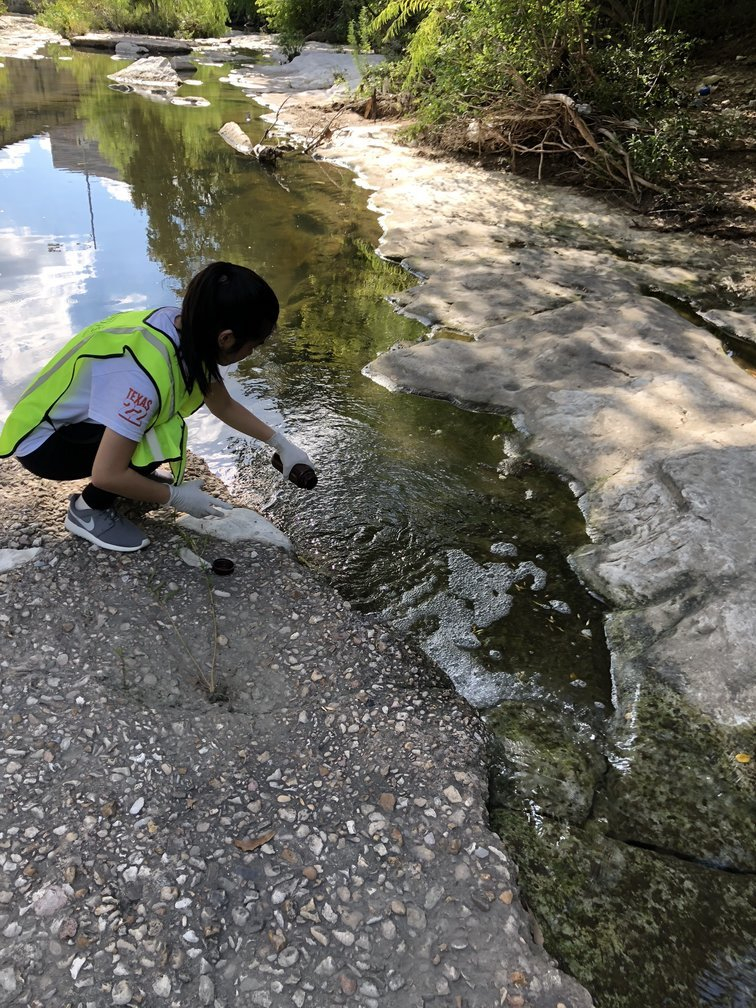Pesticides were introduced as a way to combat insects or other organisms that harmed cultivated plants or animals. They were intended to make life for humans simpler, nonetheless, the overuse of these products has led to dangerous consequences that threaten the careful balance of nature. Glyphosate is a major ingredient in Monsanto’s popular pesticide, Roundup. As is the case for all other pesticides, it is possible for glyphosate to be transported in stormwater runoff, contaminating nearby bodies of water. My research plan is to study the glyphosate levels in the Waller Creek area and make comparisons with the EPA maximum contaminant level.
A recent study in the journal Biological Conservation found that, in addition to urbanization and climate change, heavy use of pesticides is a large contributor to the worldwide decline of insects. Over the last 25 to 30 years, a 2.5% loss of biomass was recorded. “It is very rapid. In 10 years, you will have a quarter less, in 50 years only half left and in 100 years you will have none,” said corresponding author, Francisco Sanchez-Bayo in an interview with The Guardian.
Glysophate contamination in water can pose a direct threat to humans as well. A recent scientific meta-analysis combining the results of multiple studies to show that people with high exposures to glyphosate have a 41% increased risk of developing non-Hodgkin lymphoma, a type of cancer. There are currently 9,000 lawsuits against Monsanto claiming that their diseases are linked to the popular herbicide. Monsanto has continued to assert that there is no scientific evidence that definitively links these two events; however, this new analysis strongly substantiates the claim that glyphosate is carcinogenic.
With the world’s population growing, the environment is struggling to replenish itself of water resources in the face of human stimulated adversity. Preservation of our environment has always been a concern but now it calls for more attention than ever. My research is intended to deepen understanding of a local urban ecosystem. With the danger to insects increasing, the foundation of the food web faces a great threat. Ecosystems are hanging on by a thread as this exponential decay progresses. Increasing knowledge and awareness creates a gateway to refine approaches to deal with the consequences of human impact on the environment and progress towards efficient and concrete solutions.
Christine Huynh
FRI Urban Ecosystems stream

